Medicinal Mushrooms are Nutraceutical. “Nutraceuticals are a group of products that are more than food but less than pharmaceuticals, in that they can be considered a supplement to effective pharmacological treatment.”4 In other words medicine started before prescriptions. Prescriptions help. Do not stop taking them. But there are moments where stress rears it’s teeth and bites in deep. We have to manage it in some way. Here are natural medicinal mushrooms for humans have been harnessing and studying.
Please note I am not a doctor. While studied for their medicinal value, none of these medicinal mushrooms are substitutes for medical treatment. Consult a healthcare professional before use.
What is a medicinal Mushroom?
Medicinal mushrooms are fungi that have been used for centuries in various traditional healing practices, such as traditional Chinese medicine and traditional medicine in other cultures around the world. These mushrooms are valued for their potential health benefits and therapeutic properties. They contain bioactive compounds, including polysaccharides, beta-glucans, terpenoids, and antioxidants, which contribute to their medicinal properties.
Mushrooms are believed to have a range of health-promoting effects, including immune system support, anti-inflammatory properties, antioxidant activity, and potential benefits for cognitive function, cardiovascular health, and more. They are typically consumed as dietary supplements, teas, extracts, or added to culinary dishes for their nutritional value and potential medicinal effects.
1) Reishi (Ganoderma lingzhi)

Benefits: Reishi, also known as Lingzhi, is a highly revered medicinal mushroom in traditional Chinese medicine. It is famous for its immune-boosting properties and has been used for centuries to support overall well-being and vitality. Reishi contains bioactive compounds like beta-glucans and triterpenes that contribute to its medicinal benefits. These compounds are believed to modulate the immune system, reduce inflammation, and promote relaxation.
Flavor: Reishi has a bitter and woody taste, which makes it more suitable for consumption as a supplement or in tea rather than as a culinary ingredient.
Click here to purchase Reishi tea supplement from Amazon
2) Lion’s Mane (Hericium erinaceus)
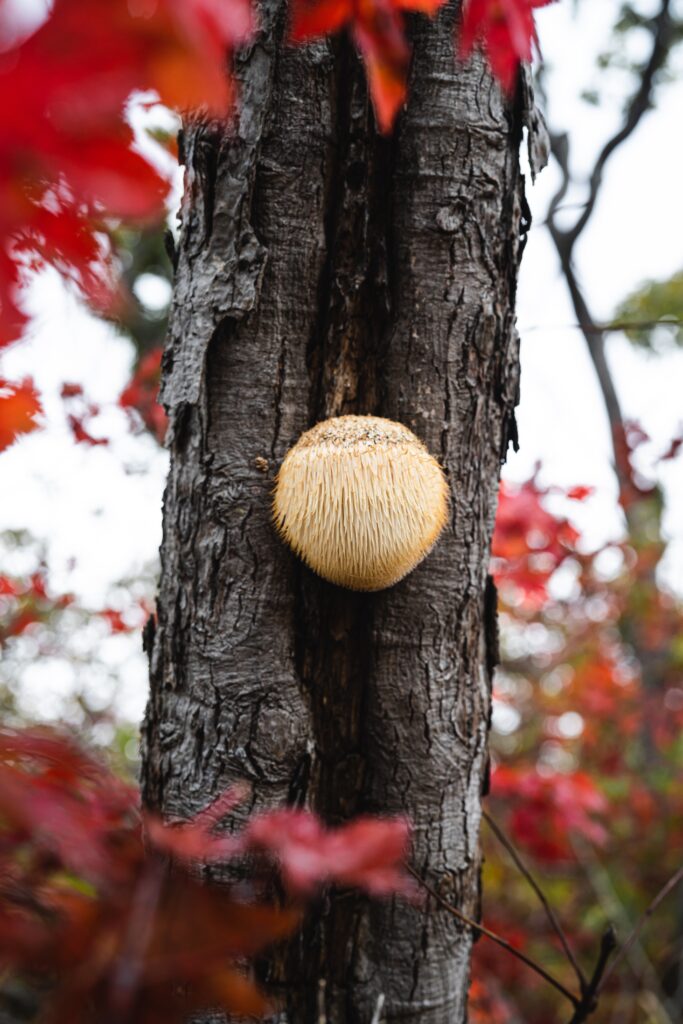
Benefits: Lion’s Mane is a unique-looking medicinal mushroom with white, cascading tendrils, resembling a lion’s mane, hence its name. It has gained popularity for its potential cognitive benefits, particularly for brain health and nerve regeneration. The mushroom contains compounds like hericenones and erinacines, which may stimulate the production of nerve growth factors in the brain. This has led to its use in supporting mental clarity, focus, and memory. I definitely take some supplements for my recovery from Traumatic Brain Injury.
Flavor: Lion’s Mane has a delicate seafood-like flavor and a pleasant, slightly sweet taste, making it a versatile culinary ingredient for various dishes.
Click here to purchase Lion’s Mane Supplement from Amazon.
3) Oyster (Pleurotus)
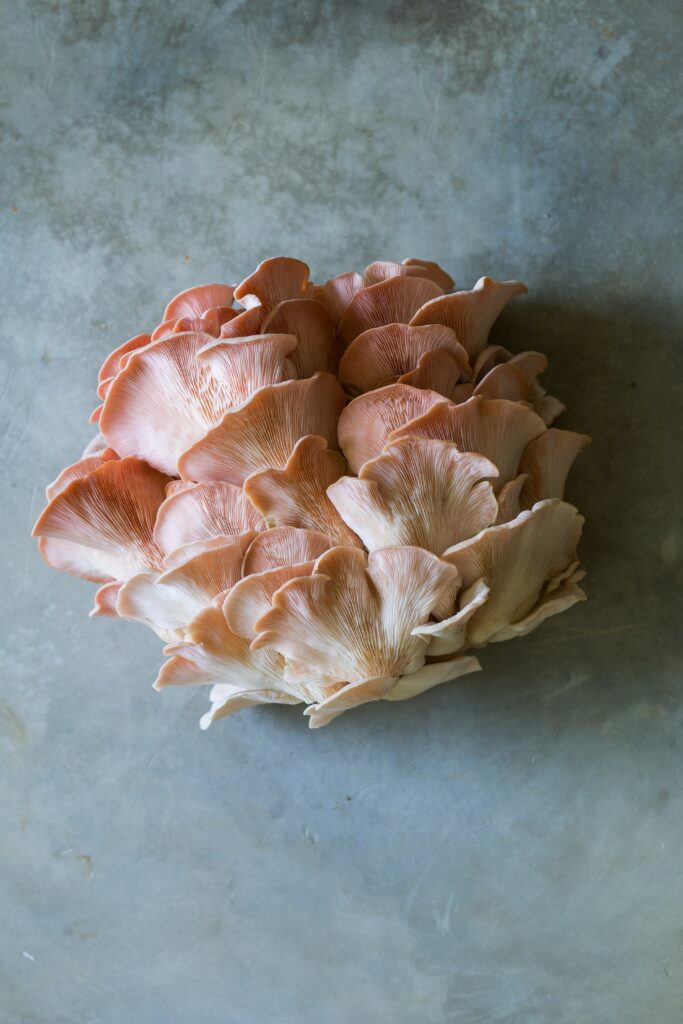
Benefits: Oyster mushrooms are one of the most commonly cultivated mushrooms worldwide and are known for their culinary appeal and medicinal mushroom properties. These mushrooms contain beta-glucans and other bioactive compounds that contribute to their immune-modulating effects. Oyster mushrooms have been studied for their potential to support a healthy cardiovascular system and regulate blood sugar levels.
Flavor: When cooked, they offer a subtle, nutty flavor, making them a popular addition to stir-fries, soups, and various dishes. They’re definitely one of my favorite to cook with.
Click here to purchase Oyster grow kit from Amazon
4) Cordyceps Medicinal Mushroom (Ophiocordyceps sinensis)
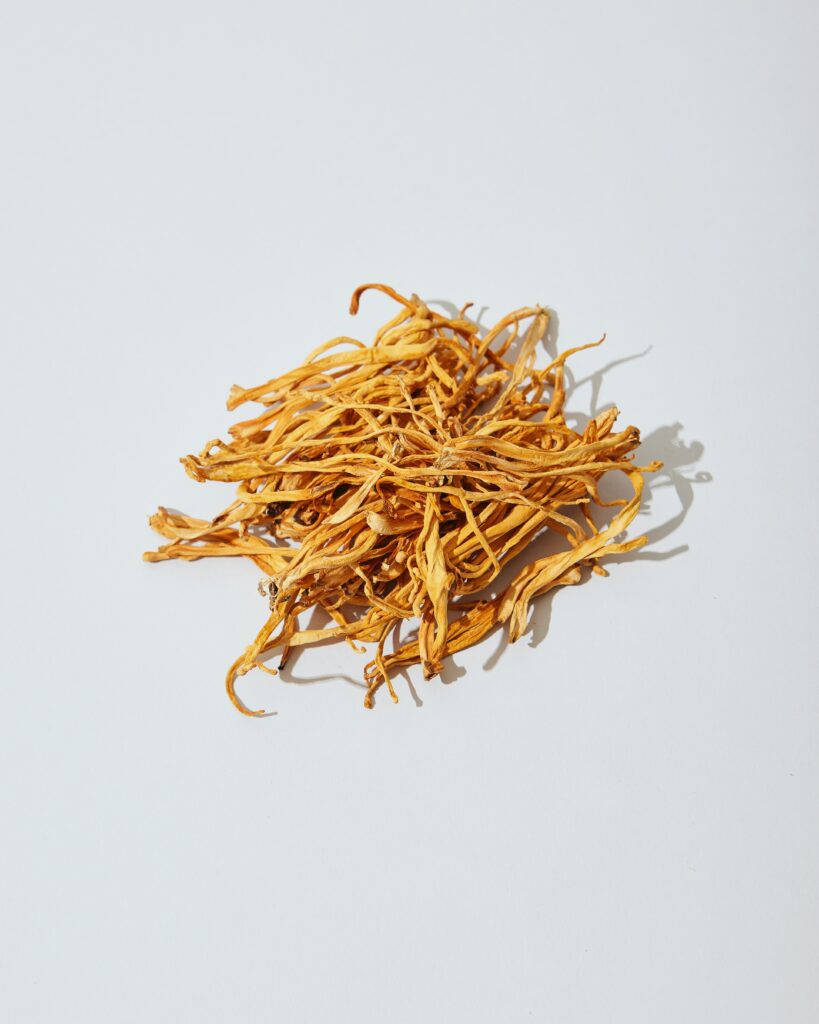
Benefits: Cordyceps is a unique parasitic medicinal mushroom that grows on certain caterpillar species in the wild. It has long been used in traditional Chinese medicine to enhance stamina, endurance, and athletic performance. Cordyceps contains cordycepin and adenosine, which may contribute to increased oxygen utilization and energy production in the body. Medicinally, it is often used to combat fatigue, improve respiratory function, and support the immune system.
Flavor: Cordyceps has a subtle earthy taste and is commonly consumed as a supplement or added to soups and stews.
Click here to purchase Cordyceps supplement from Amazon
5) Maitake (Grifola frondosa)
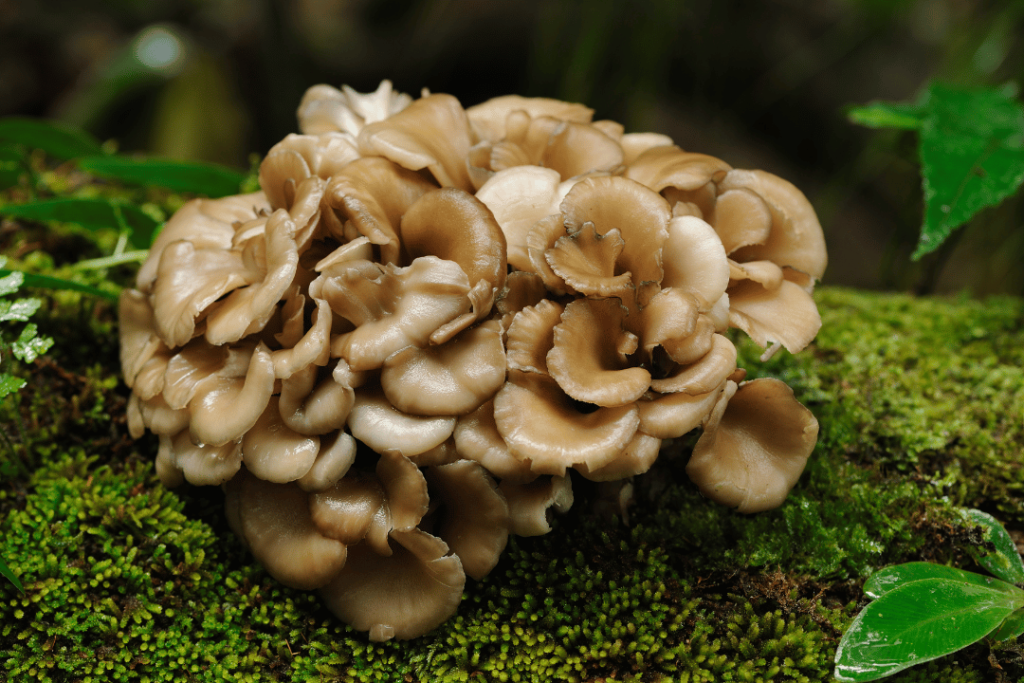
Benefits: Maitake mushrooms, also known as “Hen of the Woods,” have a distinctive fan-like appearance and are valued for their potential medicinal benefits. They are rich in beta-glucans, polysaccharides, and other compounds that are believed to support the immune system and help regulate blood sugar levels. Maitake is often used to promote overall wellness, especially in times of stress or illness. In terms of taste,
Flavor: Maitake mushrooms have a robust, earthy flavor and a firm texture, making them a delicious addition to sautés, pasta dishes, and soups.
Click here to purchase Maitake supplement from Amazon
6) Chaga (Inonotus obliquus)
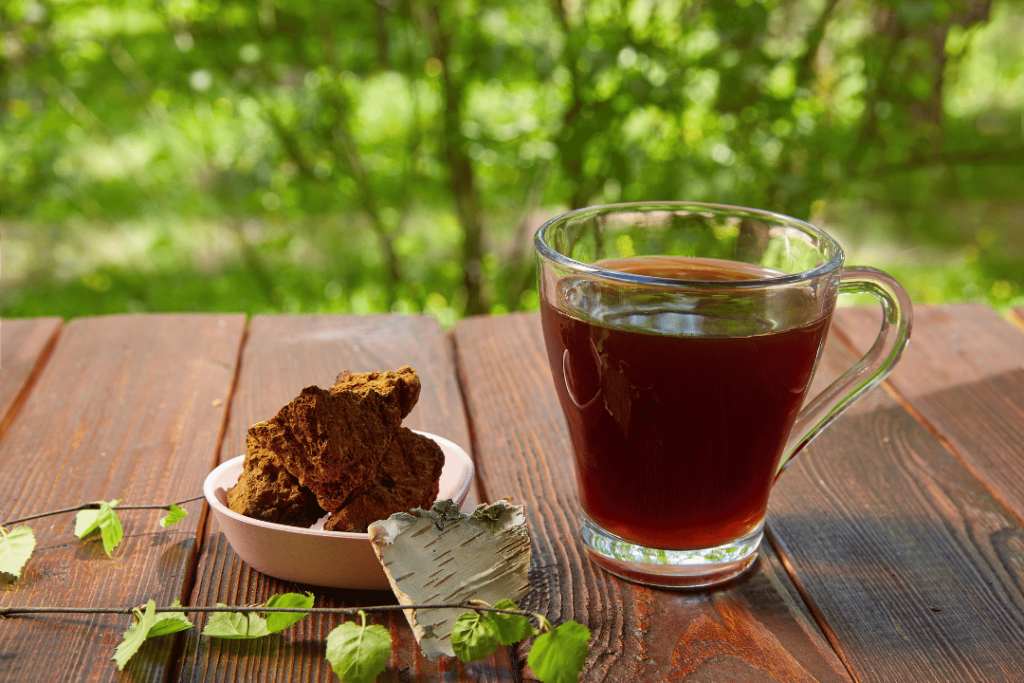
Benefits: Chaga is a dark, charcoal-like mushroom that grows on birch trees and is renowned for its antioxidant properties. It is one of the richest sources of melanin, a pigment that provides its characteristic color and contributes to its potential health benefits. Chaga is believed to support the immune system, reduce inflammation, and promote overall well-being.
Flavor: It is commonly consumed as a tea or in extract form due to its woody and slightly bitter taste, which is less suitable for culinary purposes.
Click here to purchase Chaga supplement tea from Amazon
7) Turkey Tail (Coriolus versicolor)

Benefits: Turkey Tail mushrooms are colorful fungi with a pattern resembling the tail feathers of a turkey. They are known for their immune-boosting properties, primarily attributed to their high content of beta-glucans and polysaccharides. Turkey Tail is often used as an adjuvant therapy during cancer treatment due to its potential to support the immune system and enhance the effectiveness of certain treatments.
Flavor: The mushroom has a tough and fibrous texture, making it unsuitable for direct consumption. Instead, it is commonly brewed into teas or processed into extracts and supplements.
Click here to purchase Turkey Tail supplement from Amazon
8) Shiitake (Lentinula edodes)
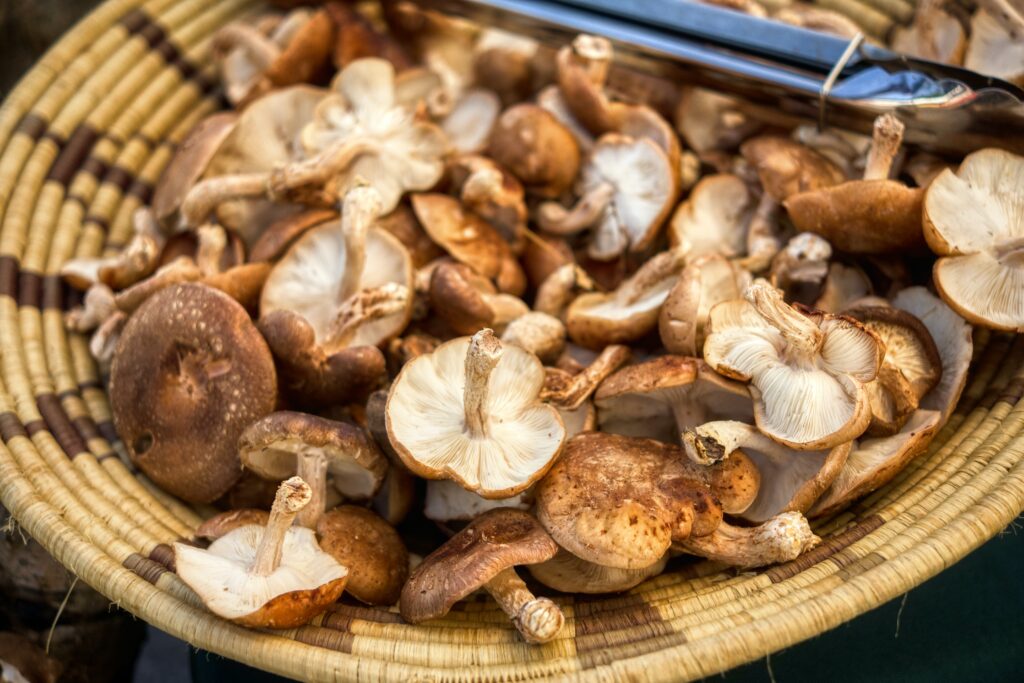
Benefits: Shiitake mushrooms are one of the most popular and widely consumed mushrooms worldwide, both for their culinary appeal and medicinal properties. They contain beta-glucans, polysaccharides, and other bioactive compounds that contribute to their immune-modulating effects and potential cholesterol-lowering benefits. Shiitake is often used to support cardiovascular health and boost the immune system.
Flavor: In terms of taste, Shiitake mushrooms have a rich, umami flavor and a slightly chewy texture, making them a delightful addition to a variety of dishes, including stir-fries, soups, and sauces.
Click here to purchase dried Shiitake supplement from Amazon
There are a lot to choose from. Click here for a link to amazon for a combination supplement which holds the benefits of multiple medicinal mushrooms.
Your diet has a lot more benefits than only weight. Take care of your body.
Happy Eating!
Rachel McG

- Stamets P, Zwickey H. Medicinal Mushrooms: Ancient Remedies Meet Modern Science. Integr Med (Encinitas). 2014 Feb;13(1):46-7. PMID: 26770081; PMCID: PMC4684114. Click here for a link to the study
- Forouzanfar F, Hosseinzadeh H. Medicinal herbs in the treatment of neuropathic pain: a review. Iran J Basic Med Sci. 2018 Apr;21(4):347-358. doi: 10.22038/IJBMS.2018.24026.6021. PMID: 29796216; PMCID: PMC5960749. Click here for link to the study
- Chong PS, Fung ML, Wong KH, Lim LW. Therapeutic Potential of Hericium erinaceus for Depressive Disorder. Int J Mol Sci. 2019 Dec 25;21(1):163. doi: 10.3390/ijms21010163. PMID: 31881712; PMCID: PMC6982118. Click here for link to the study
- Niego AG, Rapior S, Thongklang N, Raspé O, Jaidee W, Lumyong S, Hyde KD. Macrofungi as a Nutraceutical Source: Promising Bioactive Compounds and Market Value. J Fungi (Basel). 2021 May 19;7(5):397. doi: 10.3390/jof7050397. PMID: 34069721; PMCID: PMC8161071. Click here for the study
- Sharifi-Rad J, Butnariu M, Ezzat SM, Adetunji CO, Imran M, Sobhani SR, Tufail T, Hosseinabadi T, Ramírez-Alarcón K, Martorell M, Maroyi A, Martins N. Mushrooms-Rich Preparations on Wound Healing: From Nutritional to Medicinal Attributes. Front Pharmacol. 2020 Sep 16;11:567518. doi: 10.3389/fphar.2020.567518. PMID: 33041809; PMCID: PMC7525158. Click here for the study
- Arshadi N, Nouri H, Moghimi H. Increasing the production of the bioactive compounds in medicinal mushrooms: an omics perspective. Microb Cell Fact. 2023 Jan 16;22(1):11. doi: 10.1186/s12934-022-02013-x. PMID: 36647087; PMCID: PMC9841694. Click here for the study
- Gariboldi MB, Marras E, Ferrario N, Vivona V, Prini P, Vignati F, Perletti G. Anti-Cancer Potential of Edible/Medicinal Mushrooms in Breast Cancer. Int J Mol Sci. 2023 Jun 14;24(12):10120. doi: 10.3390/ijms241210120. PMID: 37373268; PMCID: PMC10299416. Click here for the study


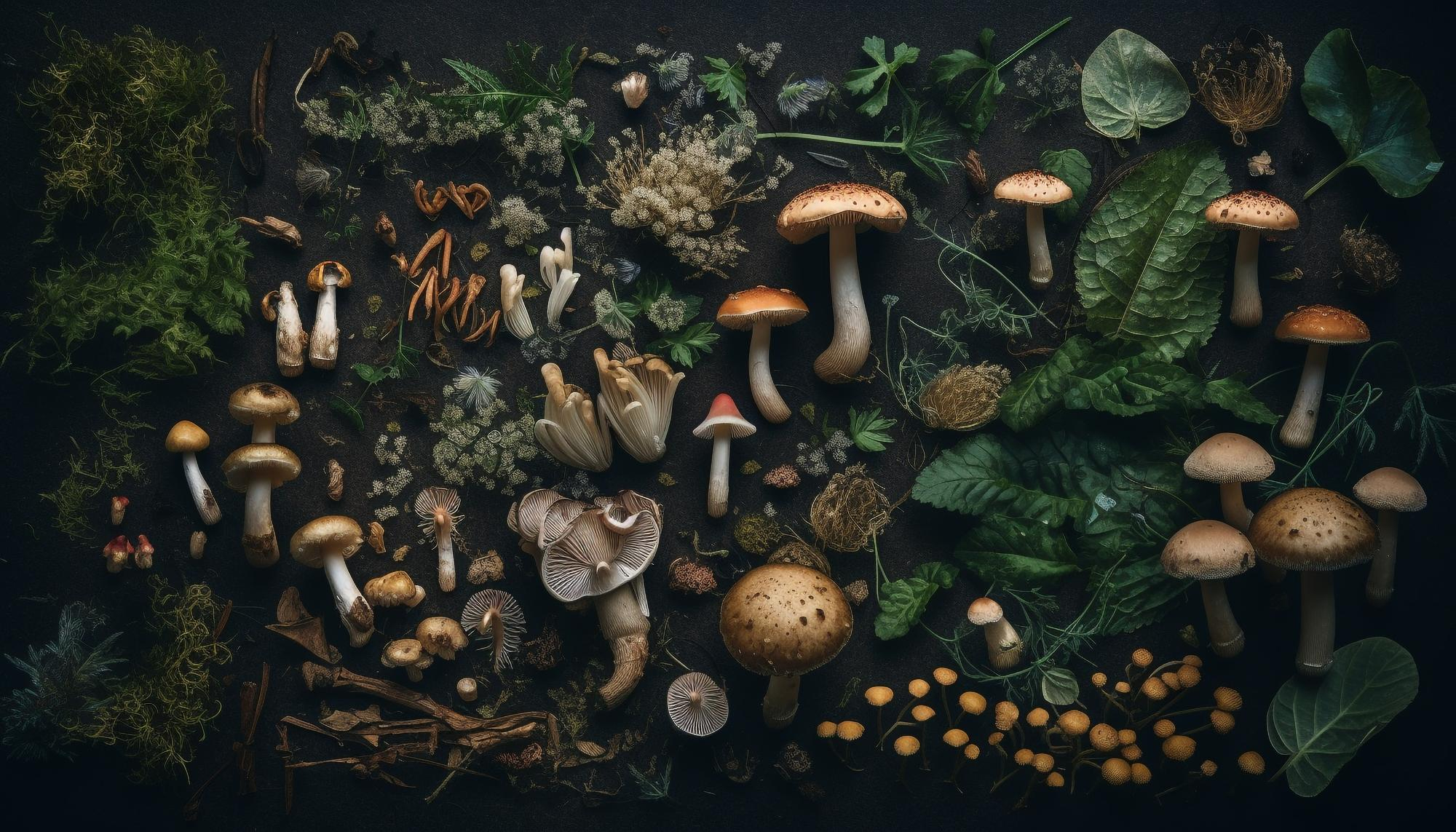
I like what you guys are up too. Such clever work and reporting! Keep up the superb works guys I抳e incorporated you guys to my blogroll. I think it’ll improve the value of my site 🙂
Thank you!
Wonderful site. Lots of helpful info here. I am sending it to some buddies ans additionally sharing in delicious. And naturally, thank you to your effort!
Thank you very much!
Wow! This could be one particular of the most useful blogs We’ve ever arrive across on this subject. Basically Great. I’m also an expert in this topic therefore I can understand your effort.